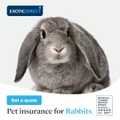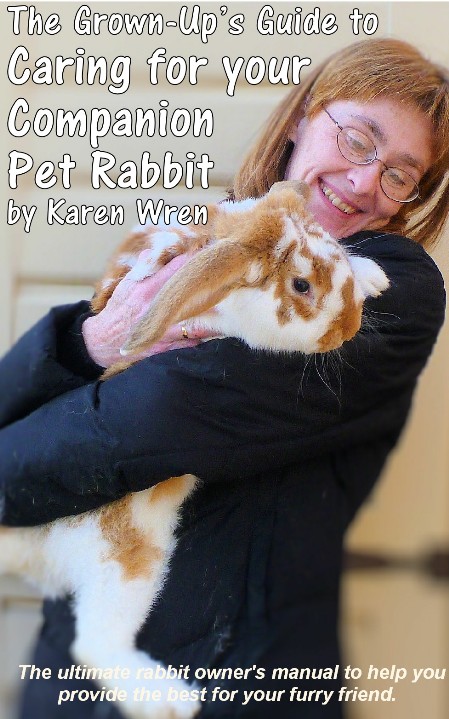http://wsx5customurl.comThis site aims to provide basic care information - please follow the links for further information about adopting and caring for your pet bunny. More detailed care information can be found on our Healthcare page, in our new book, 'Caring for your Companion Pet Rabbit - A Guide for Grown-Ups' available from Amazon and Caring for your Companion Pet Rabbit
- a DVD Guide for Grown-Ups
Rabbits are generally healthy and hardy animals - but they can also deteriorate very rapidly should they become ill and, often, they won't display obvious signs or symptoms until any illness is quite advanced. Therefore, it is vital you are highly vigilant in checking your bunny.
Look for:
Behavioural changes -
* sitting quietly in a corner
* sitting apart from your other rabbits
* ignoring favourite toys
* sitting huddled up or grinding teeth - which can be a sign of pain
* not rushing to the food bowl at feeding times
* refusing favourite treats
Signs of possible illness-
* a decrease in the amount of feed and water consumed
* reduction in number (and size) of droppings (can indicate early stasis)
* dehydration
* cold ears
* rapid breathing
* sneezing (could be simple allergy or dusty-irritant, or pasteurella)
* obvious abdominal tenderness
* bloated abdomen (could indicate gastric stasis)
* diarrhoea (re-hydration may be necessary)
* poor coat quality
* obvious weakness or splayed legs
* runny eyes or a white eye discharge (possible conjunctivitis or pasteurella)
* dehydration
* purple tinge to lips, tongue (can indicate respiratory disease)
This is only a very brief summary and, if you have the slightest suspicion that your bunny might be ill, then it is essential that he/she is examined by a rabbit-savvy veterinary surgeon without delay.
Rabbits usually live for 5-8 years, on average. Small dwarf breeds tend to have a longer life-span (we had a teenaged Netherland Dwarf) while the larger breeds, such as French Lops, used to have a disappointingly shorter average life expectancy of about 4-5 years although many of ours now reach 8-9 years and our eldest reached 10.5. However, husbandry, diet and healthcare factors can have a further influence on life-expectancy and prompt diagnosis of any medical conditions can ensure any illnesses don't develop to become fatal and we feel a combination of good genes and breeding followed by our rabbits moving to some of the best homes available has led to the steadily increasing life expectancy.
The most common general problems include overgrown nails (which should be regularly checked), overgrown teeth and diarrhoea caused by too many green foods or an infection. If your rabbit develops diarrhoea, runny eyes or nose, has a poor coat, sits alone huddled in a corner of the hutch or cage, becomes lethargic, loses his/her appetite or appears to be losing weight then veterinary attention must be sought immediately.
Young rabbits are especially susceptible to stomach and digestive problems - such as mucoid enteropathy while older bunnies are more prone to respiratory problems. Gastric stasis can affect rabbits of any age, particularly during a moult (hence the need for additional, twice-daily grooming during these periods) and can be potentially fatal.
If your young rabbit appears to be off its food, producing no droppings at all, is dehydrated and/or has a hard and lumpy, or very bloated abdomen, this can indicate gastric stasis which requires immediate treatment from a Vet. The sooner this is treated then the greater the chances of recovery from this disease, known as the 'silent killer'. A bunny suffering from stasis will need several days of intensive nursing round-the-clock - but s/he can recover if treated promptly.
It is strongly recommended that you have your rabbit(s) vaccinated against VHD (viral haemorrhagic disease) annually using the combined Myxo-RHD vaccine. Our babies are vaccinated prior to adoption.


